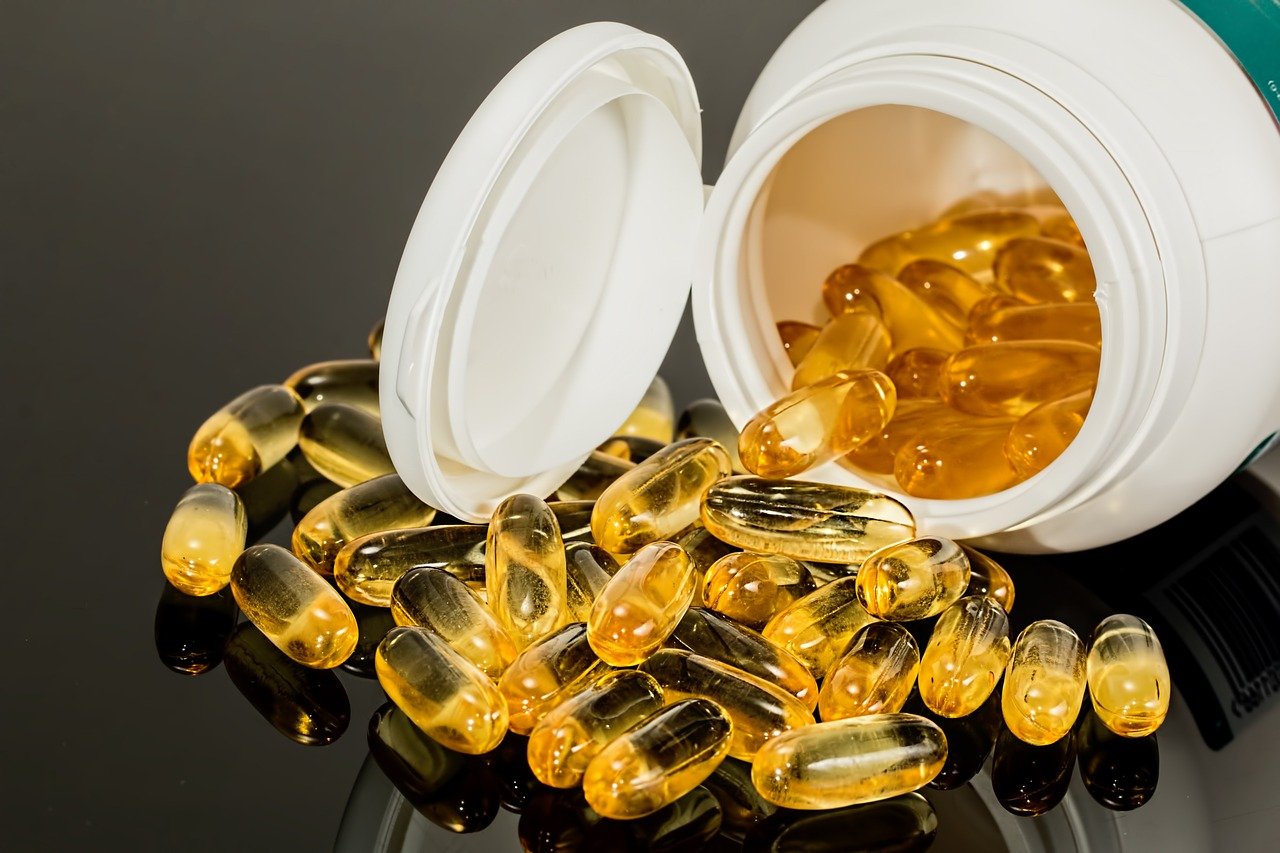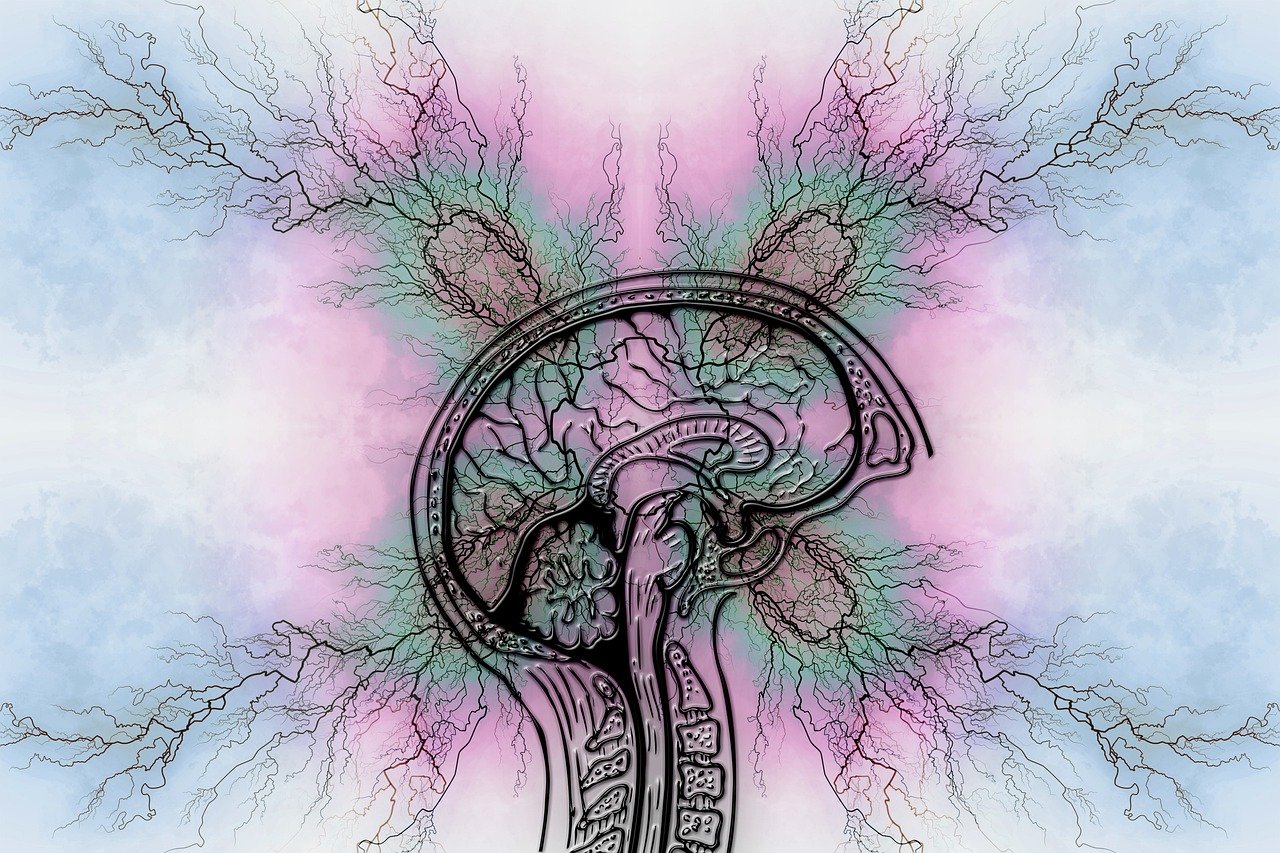If you or a loved one are struggling with the symptoms of attention deficit hyperactivity disorder (ADHD), you may have wondered if there are any supplements that can provide some relief. Fortunately, there are various supplements that have shown promise in managing ADHD symptoms. From omega-3 fatty acids to iron and magnesium, these supplements can potentially help improve focus, reduce hyperactivity, and enhance cognitive function. In this article, we will explore some of these supplements in detail, discussing their potential benefits and how they may work to alleviate the challenges of ADHD.

Omega-3 Fatty Acids
How Omega-3 Fatty Acids Benefit ADHD
Omega-3 fatty acids have been shown to provide numerous benefits for individuals with ADHD. These essential fats are crucial for brain health and functioning, and studies have found that supplementing with omega-3s can help reduce symptoms of ADHD.
Research suggests that omega-3 fatty acids can improve attention, focus, and impulsivity in individuals with ADHD. They may also help regulate mood and reduce levels of inflammation in the body, which can contribute to ADHD symptoms. Additionally, omega-3s have been found to support healthy brain development in children.
Sources of Omega-3 Fatty Acids
There are several sources of omega-3 fatty acids that you can incorporate into your diet. Fatty fish like salmon, mackerel, and sardines are rich in omega-3s. Vegetarian options include flaxseeds, chia seeds, and walnuts. If you find it challenging to consume enough omega-3s through diet alone, you may consider taking a fish oil or algae-based supplement.
Recommended Dosage
The recommended dosage of omega-3 fatty acids varies depending on the individual and their specific needs. However, the American Heart Association suggests consuming at least two servings of fatty fish per week or taking 1,000 mg of fish oil supplements daily. It’s essential to consult with your healthcare provider to determine the appropriate dosage for you or your child with ADHD.
Iron
Importance of Iron for ADHD
Iron plays a vital role in brain function and cognition, making it essential for managing ADHD symptoms. Research has shown a correlation between iron deficiency and an increased risk of developing ADHD or exacerbating existing symptoms. Iron is necessary for the production of neurotransmitters like dopamine and serotonin, which are involved in regulating mood and attention.
Iron Sources
To ensure an adequate intake of iron, include foods rich in this mineral in your diet. Good sources of iron include lean meats, poultry, fish, legumes, and dark leafy greens. Fortified cereals and grains can also be beneficial. Consuming iron-rich foods in combination with vitamin C-rich foods can enhance iron absorption.
Supplement Considerations
It’s important to consult with a healthcare professional before starting an iron supplement. Iron supplements are generally recommended for individuals diagnosed with iron deficiency anemia or those with low iron levels. Taking iron supplements without medical supervision can lead to iron overload, which may have adverse effects on health. Your healthcare provider can help determine if an iron supplement is necessary and provide guidance on the appropriate dosage.

Zinc
Zinc and ADHD
Zinc is a mineral that plays a crucial role in brain function and development. Studies have found a correlation between low levels of zinc and ADHD symptoms. Zinc is involved in neurotransmitter regulation, which affects attention, mood, and impulsivity. Supplementing with zinc may help improve these symptoms in individuals with ADHD.
Food Sources of Zinc
To increase your zinc intake, include foods rich in this mineral in your diet. Good sources of zinc include oysters, beef, poultry, pumpkin seeds, and legumes. Dairy products and fortified cereals can also contribute to your zinc intake.
Zinc Supplements
If you’re unable to meet your zinc requirements through diet alone, consider discussing zinc supplementation with your healthcare provider. They can help determine if a zinc supplement is necessary and provide guidance on the appropriate dosage. It’s important to note that excessive zinc intake can interfere with copper absorption, so it’s essential to follow your healthcare provider’s recommendations.
Magnesium
Effect of Magnesium on ADHD
Magnesium is a mineral that supports brain health and plays a role in managing ADHD symptoms. Research has found that individuals with ADHD often have lower magnesium levels compared to those without ADHD. Supplementing with magnesium may help decrease hyperactivity, impulsivity, and improve attention span.
Foods Rich in Magnesium
Incorporating magnesium-rich foods into your diet can help increase your magnesium intake. Good sources of magnesium include nuts, seeds, legumes, leafy green vegetables, and whole grains. Dark chocolate and avocados are also sources of magnesium.
Supplementation with Magnesium
If you’re considering magnesium supplementation, it’s important to consult with your healthcare provider. They can assess your magnesium levels and determine if a supplement is necessary. The appropriate dosage will depend on various factors, including age and overall health. It’s crucial to follow your healthcare provider’s guidance to avoid excessive magnesium intake.

Vitamin D
Role of Vitamin D in ADHD
Vitamin D is a crucial nutrient that plays a role in brain health and functioning. Research has suggested a link between low vitamin D levels and an increased risk of developing ADHD or worsening symptoms. Vitamin D is involved in neurotransmitter synthesis and receptor functioning, which can influence mood, cognition, and attention.
Sunlight and Vitamin D
The most significant source of vitamin D is sunlight. When your skin is exposed to sunlight, it synthesizes vitamin D. However, factors such as geographical location, seasonal changes, and sun protection practices can affect your ability to obtain sufficient vitamin D from sunlight alone. In cases where sun exposure is limited, supplementation may be necessary.
Vitamin D Supplements
Supplementing with vitamin D may be beneficial for individuals with ADHD, especially those with low levels of this vitamin. It’s important to consult with your healthcare provider to determine if vitamin D supplementation is necessary and to determine the appropriate dosage. They can assess your vitamin D levels through a blood test and provide guidance on how to best meet your individual needs.
B-Vitamins
B-Vitamins and ADHD
B-vitamins are a group of essential nutrients that play a crucial role in brain health and functioning. Research suggests that individuals with ADHD may have lower levels of certain B-vitamins. Supplementing with B-vitamins may help improve symptoms such as impulsivity and mood instability.
Food Sources of B-Vitamins
Including foods rich in B-vitamins in your diet can help increase your intake of these essential nutrients. Good sources of B-vitamins include whole grains, legumes, leafy green vegetables, eggs, dairy products, and lean meats.
Supplementing with B-Vitamins
If you’re considering B-vitamin supplementation, it’s important to consult with your healthcare provider. They can assess your individual needs and determine if a supplement is necessary. B-vitamins are typically available in a complex form, which contains a combination of different B-vitamins. Your healthcare provider can help determine the appropriate dosage based on your specific requirements and health status.
Probiotics
Gut-Brain Connection
There is growing evidence suggesting a connection between the gut and the brain, known as the gut-brain axis. The gut houses trillions of bacteria that play a role in various aspects of health, including brain health. Imbalances in gut bacteria, known as dysbiosis, have been associated with neurodevelopmental disorders like ADHD.
Benefits of Probiotics for ADHD
Probiotics are beneficial bacteria that can help restore and maintain a healthy balance of gut bacteria. Some studies have explored the potential benefits of probiotics for managing ADHD symptoms. While research in this area is still ongoing, early findings suggest that probiotics may help improve cognitive function, behavior, and mood in individuals with ADHD.
Choosing the Right Probiotic Supplement
When considering probiotic supplementation, it’s essential to choose the right probiotic strain and consult with your healthcare provider. Different strains of bacteria have specific benefits, so it’s important to choose a strain that has been studied for ADHD. Your healthcare provider can help you select an appropriate probiotic supplement and determine the optimal dosage based on your individual needs.
Ginkgo biloba
Does Ginkgo biloba Help with ADHD?
Ginkgo biloba is an herbal supplement derived from the leaves of the Ginkgo biloba tree. It has been used in traditional medicine for its potential cognitive-enhancing properties. Some studies suggest that Ginkgo biloba may have benefits for individuals with ADHD, including improved attention and memory.
Ginkgo biloba Supplements
If you’re considering Ginkgo biloba supplementation, it’s important to consult with your healthcare provider. They can help determine if this supplement is appropriate for you and provide guidance on the dosage and duration of use. It’s important to note that Ginkgo biloba may interact with certain medications, so it’s crucial to discuss this supplement with your healthcare provider to ensure safety and efficacy.
Considerations and Safety
While Ginkgo biloba shows promise for managing ADHD symptoms, more research is needed to understand its full potential and safety. It’s crucial to consult with your healthcare provider before starting any new supplement, especially if you have underlying health conditions or are taking medications. Your healthcare provider can assess your individual needs and provide personalized recommendations.
Rhodiola rosea
ADHD and Rhodiola rosea
Rhodiola rosea is an adaptogenic herb that has been used traditionally for its potential stress-reducing and cognitive-enhancing properties. Some research suggests that Rhodiola rosea may have benefits for individuals with ADHD, including improved attention, mental function, and decreased fatigue.
Rhodiola rosea Supplements
If you’re considering Rhodiola rosea supplementation for ADHD, it’s important to consult with your healthcare provider. They can help determine if this supplement is suitable for you and provide guidance on the dosage and duration of use. It’s important to note that Rhodiola rosea may interact with certain medications, so it’s crucial to discuss this supplement with your healthcare provider to ensure safety and efficacy.
Potential Side Effects
While Rhodiola rosea is generally well-tolerated, it may cause some side effects in certain individuals. These side effects can include dizziness, dry mouth, irritability, and headache. It’s important to monitor your body’s response to Rhodiola rosea and consult with your healthcare provider if you experience any adverse effects. They can provide guidance on adjusting the dosage or discontinuing the use of this supplement if needed.
L-Theanine
How L-Theanine May Benefit ADHD
L-Theanine is an amino acid commonly found in green tea. It has been suggested to have calming and relaxing properties without causing drowsiness. Some studies suggest that L-Theanine may help improve focus, attention, and cognitive function in individuals with ADHD.
Sources of L-Theanine
While L-Theanine is naturally present in green tea, it can be challenging to achieve therapeutic doses through tea alone. L-Theanine supplements are available and provide a concentrated form of this amino acid.
Supplementing with L-Theanine
If you’re considering L-Theanine supplementation for managing ADHD symptoms, it’s important to consult with your healthcare provider. They can help determine if this supplement is appropriate for you and provide guidance on the dosage and duration of use. It’s important to remember that everyone’s response to supplements can vary, and your healthcare provider can help monitor your progress and adjust the dosage if necessary.
In conclusion, while there is emerging research suggesting potential benefits of certain supplements for managing ADHD symptoms, it’s important to approach supplementation with caution. It’s crucial to consult with a healthcare professional before starting any new supplements, especially if you have underlying health conditions or are taking medications. They can assess your individual needs, provide personalized recommendations, and monitor your progress to ensure safety and efficacy. Remember that supplements should never replace traditional ADHD management strategies, such as behavioral therapy and medication when necessary. A comprehensive approach that incorporates lifestyle changes, dietary adjustments, and appropriate medical interventions is key to managing ADHD effectively.